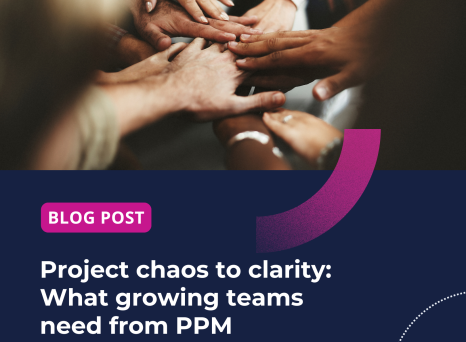Project management serves a number of purposes, most notably as a way to ensure that work across an organization gets done, efficiently and effectively. In its most basic application, project management can be seen as a way for teams to organize their ideas (aka, needs) and then identify exactly which opportunities must be carried out to achieve specific business goals.
Doing this well usually requires the help of a skilled project manager, someone who can keep teams on-track and follow the life of a project in its entirety. This person typically has a “bird's eye view” across all of a team's projects and can make sound judgments as to which projects to launch, place on hold, or cancel altogether. Project managers make these decisions by assessing a number of factors that can either lead to or detract from a project's eventual success.
To this end, project managers are often perceived as “gatekeepers” who are ultimately tasked with ensuring a project's success from start to finish. They are critical for identifying and allocating resources, managing budgets, mitigating risks, and anticipating the unexpected.
Who makes up a project management team?
Depending on the size of your organization or the complexity of the work you do, project management teams can take on many forms and involve a variety of key players.
In many businesses, it's common best practice to maintain a centralized project management team led by a “chief project manager.” This person typically oversees a team of project managers, who all serve different parts of the organization. As such, this chief project manager tends to acts as a hub for all of an organization's project management activities.
In more complex organizations, however, project management teams may encompass more than project managers alone, including but not limited to: project planners, management controllers, portfolio advisors, change management specialists, and risk managers.
Whatever the case may be for your organization, the most important thing to remember is that project management, more often than not, involves an entire team. You shouldn't ever find yourself running point on projects alone. This is why it's so important to hire the right talent — across your various project management functions — to deliver on your organization's needs with the highest degree of quality, knowledge, and expertise. This is the only way you can build a corporate culture wherein project management is not simply seen as a business function, but more importantly as an element that breathes life into an organization's day-to-day operations.
How can project management be more efficient?
Knowing that your project management team is likely made up of people who bring different skills and expertise to the table, it's important to set organizational “ground rules” upfront that allow teams to approach their work in a cohesive and consistent manner. This includes setting standardized expectations around project statusing, weekly team meetings, reporting dashboards as well as establishing other tools and activities that maintain a healthy workflow.
Ignoring these important rules, processes, and practices — all of which ultimately aim to streamline project management activities within an organization — or even failing to have standardized structures in place to ensure project success will obviously have a negative impact on any organization over time. This often results in delays, budget overruns, and other issues that can significantly slow down a project's progress.
This is why assessing your organization's project management maturity is so important: it can help identify the roadblocks that keep your organization from operating efficiently while simultaneously helping you build an action plan to mitigate and resolve these challenges.
But keep in mind that these findings and outcomes won't happen overnight. Assessing project management maturity requires a skilled appraiser to examine your organization's processes, practices, talent, and other critical factors that drive operational efficiency over a period of time — and then deliver highly personalized recommendations based on those observations. The goal here is to both celebrate what project management teams are already doing well while also pinpointing key opportunities for improvement.
Although there are some common industry-wide best practices that can apply to virtually any project management team, it's important that this assessment is tailored to your specific organization in order to provide you with a personalized action plan that can help you take meaningful steps towards increasing the overall efficiency and profitability of your projects.
Ready to assess your organization's project management maturity?
In partnership with Planisware, Prodecys, an industry-leading project management specialist, can guide you along this project management optimization journey. We take an unbiased, fact-based approach to understanding the ins and outs of your project management activities to equip you with key observations, solutions, and recommendations that address your business's unique challenges and needs. The outcome of this work can include:
● The development of a personalized assessment rubric relevant to your organization
● A thorough analysis that “scores” your organization against key success metrics
● A recap report based on interviews with key stakeholders
● Final recommendations that align to identified areas for improvement
To learn more about our approach, please visit our website today.

